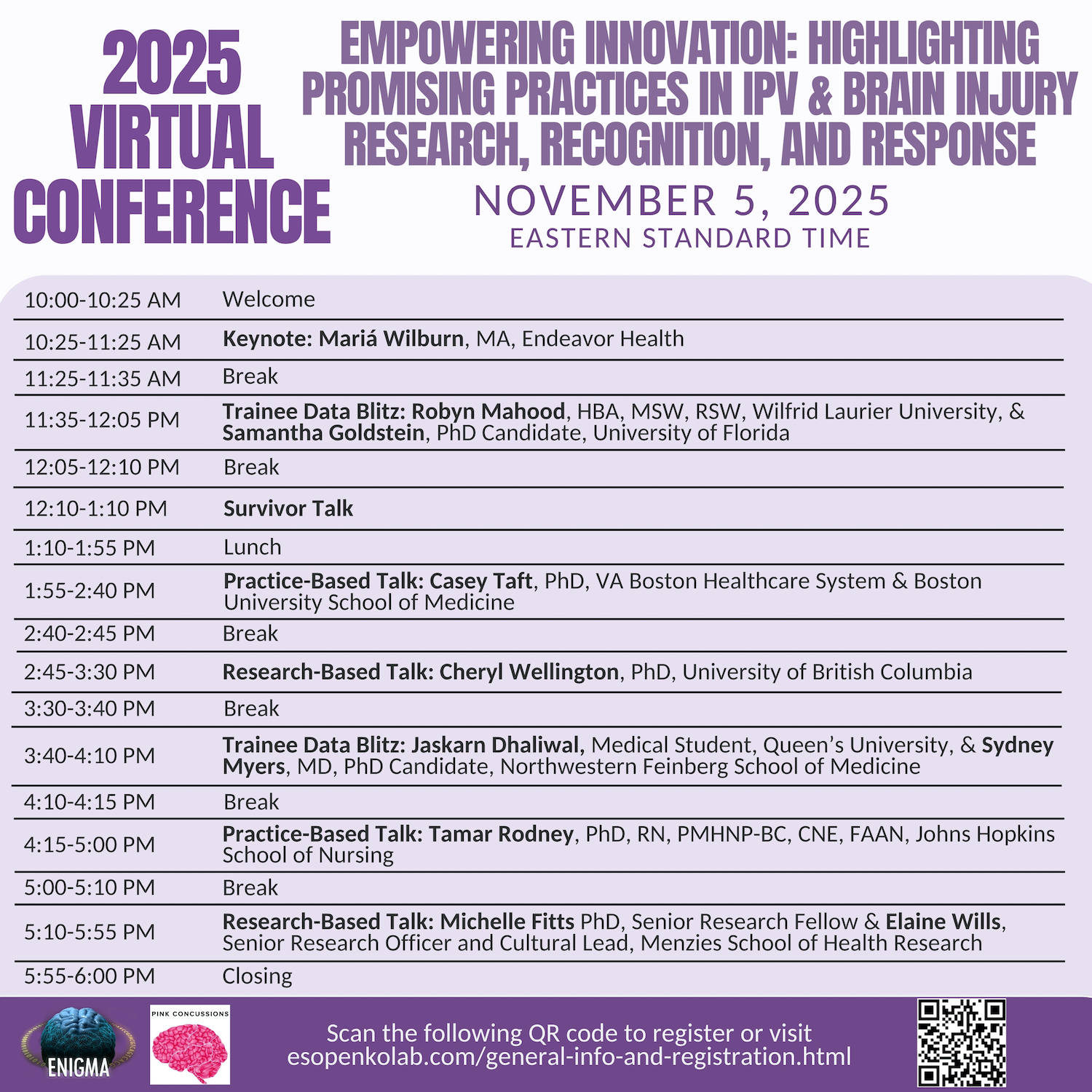Upcoming ENIGMA & Related Events
3rd IPV Brain Injury Virtual Conference
Virtually | 5-6 November, 2025
The ENIGMA IPV Working Group and Pink Concussions are excited to announce their third 2025 ENIGMA IPV and PINK Concussions conference "Empowering Innovation: Highlighting Promising Practices in Intimate Partner Violence and Brain Injury Research, Recognition, and Response" happening November 5-6, 2025. This conference will be FREE and VIRTUAL.
REGISTRATION IS OPEN! To register, click here.
Presentations will be recorded and uploaded on ENIGMA's YouTube channel post-conference with presenters' permission.
More details here: http://esopenkolab.com/ and on the ENIGMA IPV Working Group page.





